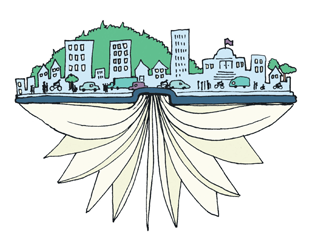
- This event has passed.
Workshop Series: Research Skills to Break Down the Ivory Tower!
March 21, 2019 @ 3:30 pm - March 29, 2019 @ 1:30 pm
FreeEvent Navigation
Note: These workshops are open to anyone, including students and community members. We will adapt the discussion to the make-up of the room and encourage participation from diverse disciplines and backgrounds.
Les ateliers se dérouleront en anglais, mais les contributions en français sont bienvenues. Les facilitatrices peuvent s’exprimer et répondre aux questions en français.
**Workshop descriptions below!**
Please RSVP by clicking going!
— Thursday, March 21st —
1. Asking Effective Questions in Community Research // 3:30-5:30pm
— Friday, March 22nd —
2. Alternative Sources: Amplifying Voices and Validating Grassroots Knowledge in Research. // 1:30-3:30pm
— Thursday, March 28th —
3. Stats, Surveys and Numbers in Community Work // 3:30-5:30pm
— Friday, March 29th —
4. Writing & Creating for Community: Accessibilize Your Research // 1:30-3:30pm
WORKSHOP DESCRIPTIONS
Asking Effective Questions in Community Research – March 21 – 3:30
Personal interviews and interactions are an essential part of much community research work – but how do we know what to ask? And how do we decide how to ask it? Figuring this out can be key to closing the gap between a recognised need for information and respectful, actionable community research.
This workshop will focus on a simple methodology we use at CURE to quickly expand out an initial feeling or idea into an effective qualitative questionnaire. We will practice this skill together by brainstorming a few sample questionnaires, and consider the ways in which qualitative interviewing can be appropriately approached in a community research context.
—————–
Alternative Sources: Amplifying Voices and Validating Grassroots Knowledge in Research. – March 22 – 1:30
Peer-review is great, but whose voices ìmatterî and who has access to certain forms of knowledge? This workshop takes a pragmatic but critical look at traditional academic sources and why certain perspectives get validated over others. Weíll talk about ìalternativeî and grassroots knowledge sources such as zines, blogs, oral history and community art practice, among others.
We hope to create a space for discussion and knowledge-sharing. Weíll also explore some tips and tricks for finding and using alternative sources, including examples. Our approach frames research from a community-driven, social justice perspective rather than a purely academic one.
—————–
Stats, Surveys and Numbers in Community Work – March 28 – 3:30
Surveys, statistics, and quantitative analysis are core tools in contemporary research work, but they can often feel unattainable to community groups and those doing community work – seeming too costly and too complicated.
This workshop will leverage CURE’s experience in survey design to give students confidence in approaching numbers in their community work. Math-phobes welcome!
We’ll give an overview of basic quantitative methods, suitable for people with any level of mathematical education or comfort. Our focus will be on the fundamentals of survey design in community work: how to build a small, effective research instrument; how to most effectively distribute your survey given limited resources; and how to accurately interpret and share the numbers you get.
—————–
Writing & Creating for Community: Accessibilize Your Research – March 29 – 1:30
While there has been movement from some academic circles to make research more inclusive and community-driven, academia remains largely an ivory tower. The type of language and formatting used in many academic research papers is often obscure to those outside the university bubble and acts as a barrier that keeps knowledge contained to largely privileged circles.
We approach knowledge as something that should be accessible to all. Together, weíll discuss different strategies and formats for presenting research and making it useful in a community context. This includes an exploration of basic accessibility best-practices for diverse print, visual and digital compositions.
We recognize that the line between university and community can be fluid, and that students face particular challenges when it comes to balancing accessibility considerations with sometimes rigid course requirements. These challenges will be addressed in the workshop and we particularly welcome contributions from those who have found their voices invalidated or marginalized due to their class, racial, ethnic or other background.
—————–
ABOUT CURE CONCORDIA
CURE Concordia is an independent non-profit with a mandate to promote community-driven, social justice research. We facilitate collaborations between grassroots community groups and students to work on research projects that fulfill a self-determined community need.
The space is unfortunately not wheelchair accessible. At the entrance there is a step, and no ramp. We are aiming to book a better space for future workshops. If you require assistance, please text/call me (Jodie-Ann) at 514-706-0928.
Please refrain from wearing strong scents.
We would like to acknowledge that Concordia University is located on unceded Indigenous lands. The Kanien’kehá:ka Nation is recognized as the custodians of the lands and waters on which we gather today. Tiohtiá:ke/Montreal is historically known as a gathering place for many First Nations. Today, it is home to a diverse population of Indigenous and other peoples. We respect the continued connections with the past, present and future in our ongoing relationships with Indigenous and other peoples within the Montreal community.
